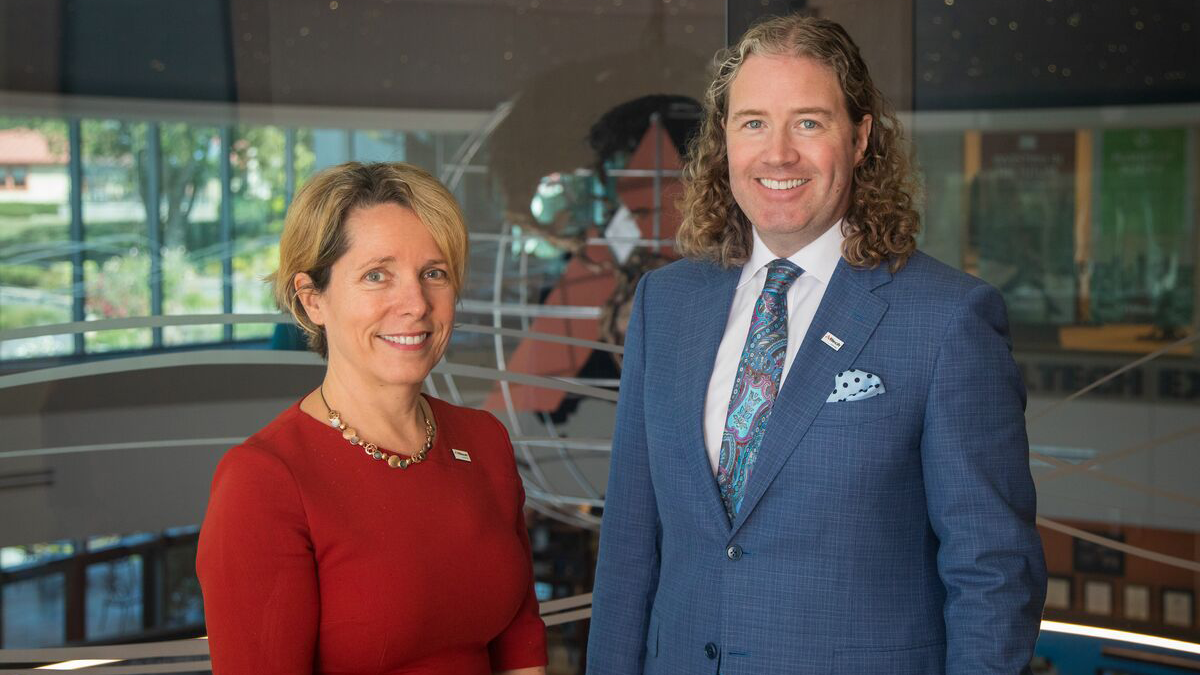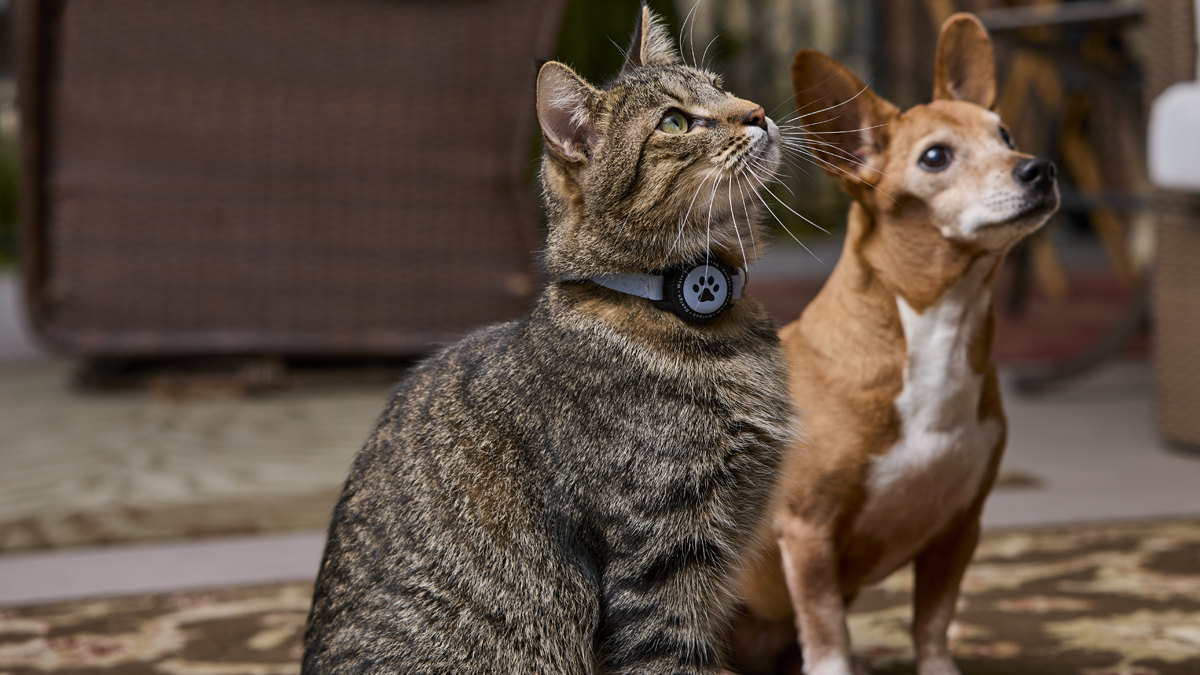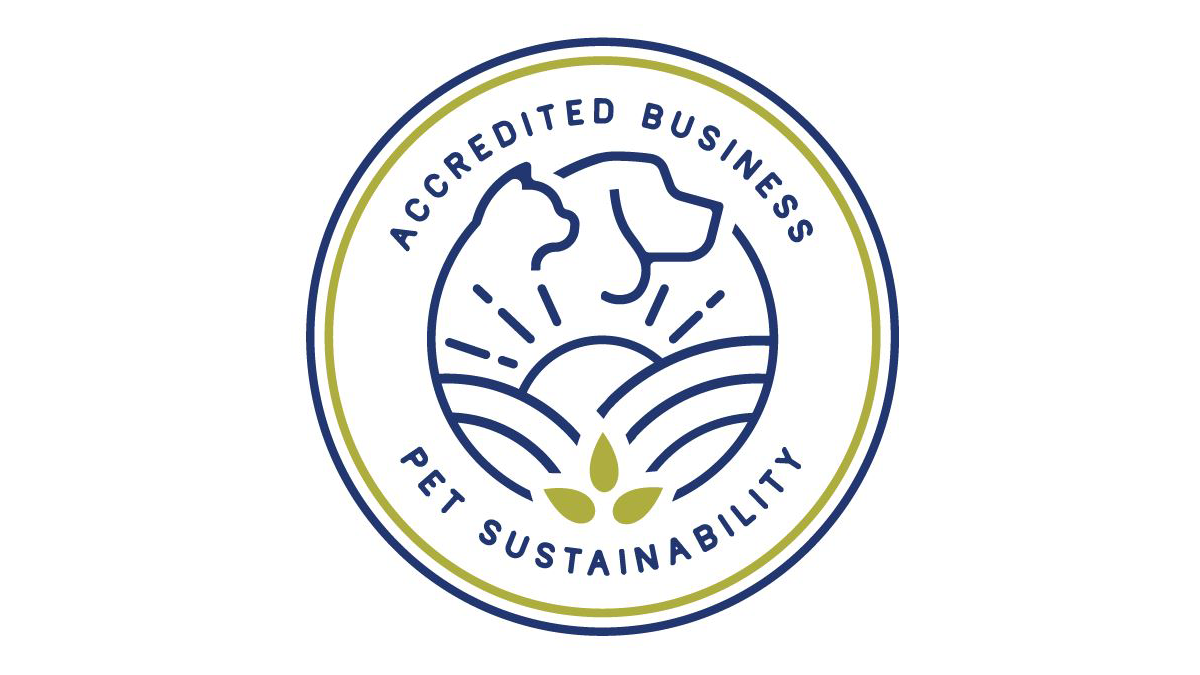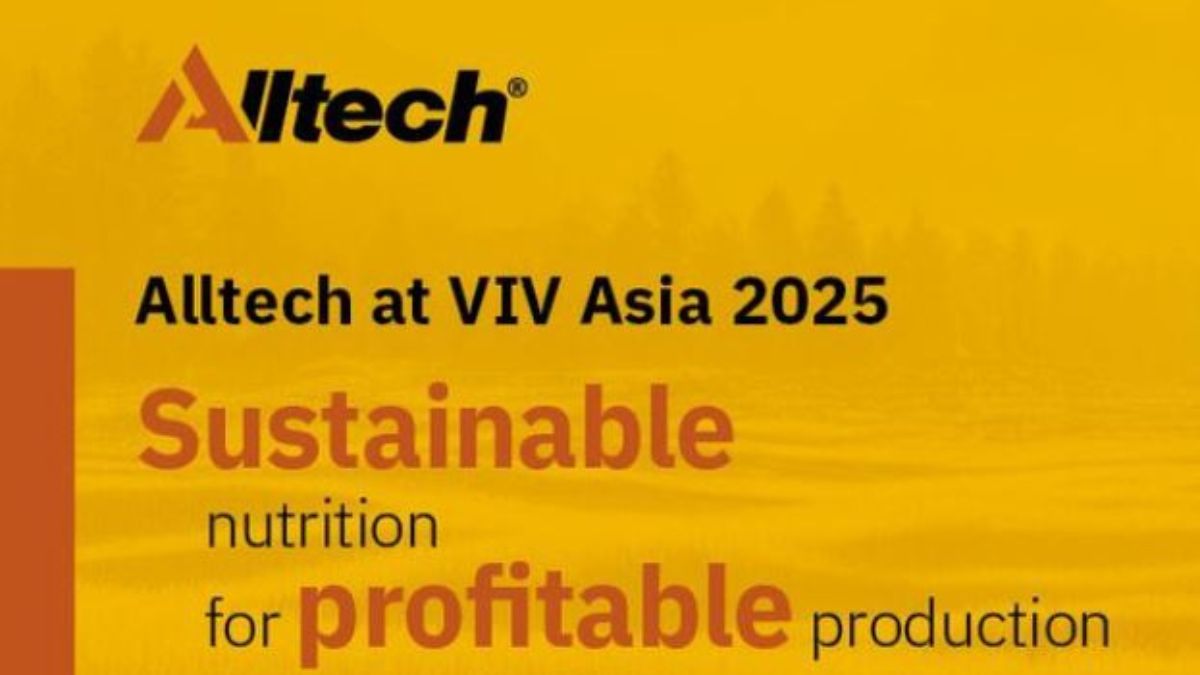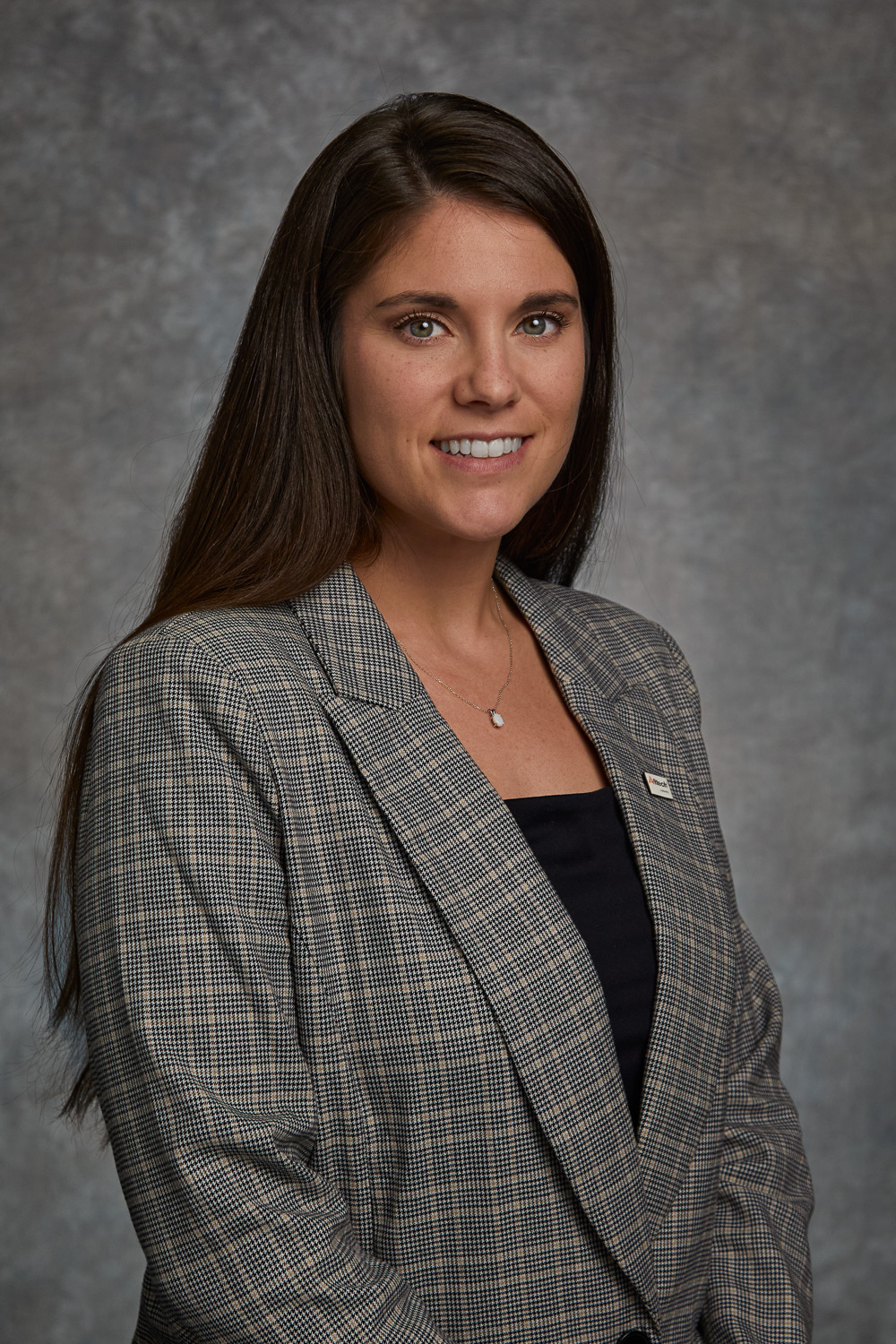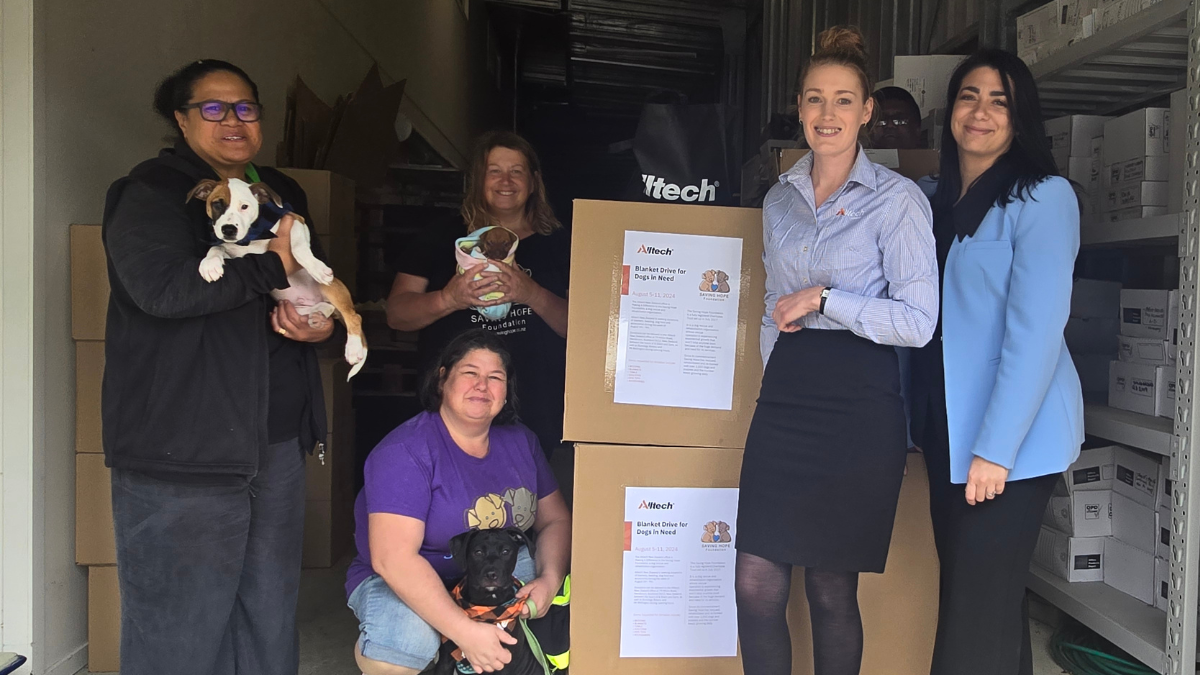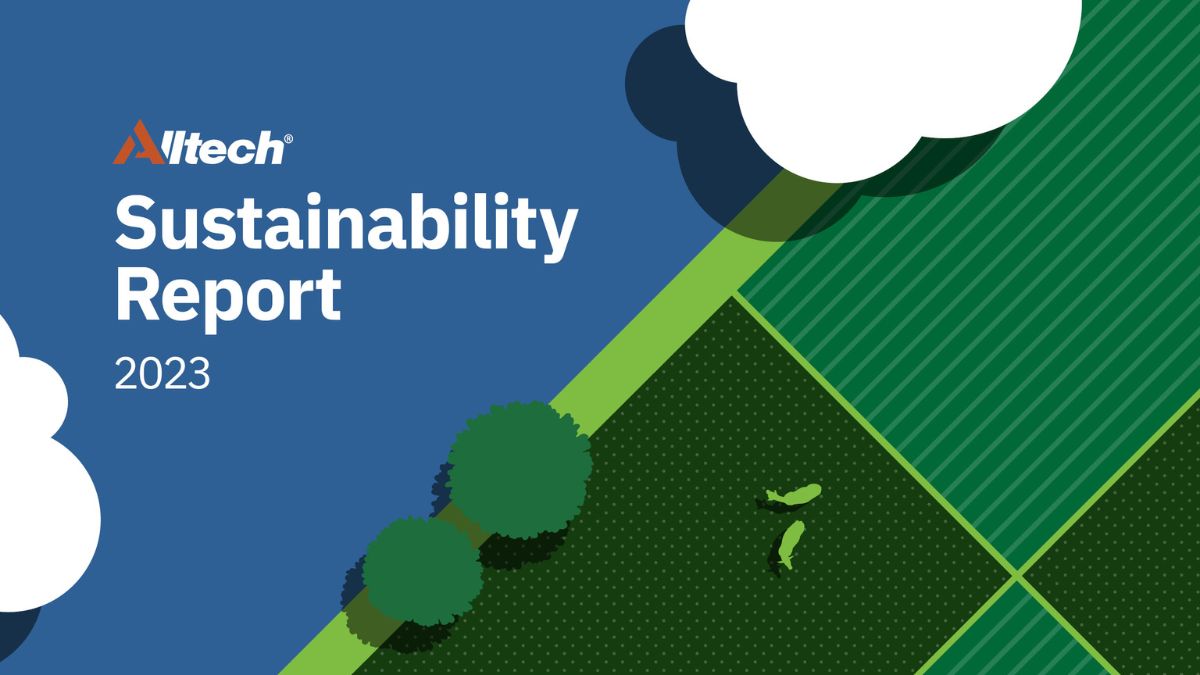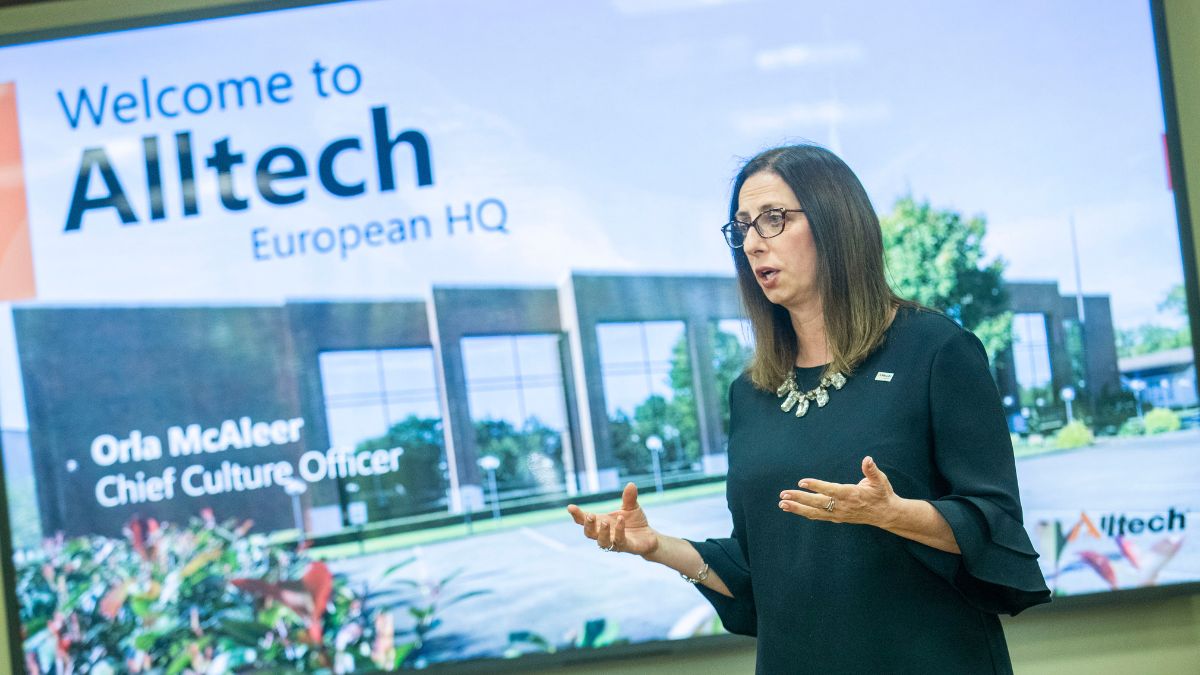Pet brands that focus on sustainability have grown 7.1 times faster than their conventional counterparts in the last five years. This insight comes from our latest episode of the AgFuture podcast. This week, we are joined by Jim Lamancusa, Executive Director of the Pet Sustainability Coalition; Hannah Tirrell-Wysocki, Accreditation Manager at the PSC; and Kami Grandeen, Alltech’s North American Companion Animal Sales Manager. They discuss the mission and growth of the PSC, Alltech's recent reaccreditation with the PSC, and the platinum, gold, and silver sustainability medals from EcoVadis, an organization that provides business sustainability ratings. They also explore the shifting demand for sustainable pet foods by Millennials and Gen Z. Tune in to learn how these initiatives are transforming the pet industry.
The following blog is a summary of the Ag Future podcast episode with Jim Lamancusa, Hannah Tirrell-Wysocki and Kami Grandeen, hosted by Tom Martin. Click below to hear the full audio or listen to the episode on Apple Podcasts, Spotify or wherever you get your podcasts.
Tom: For Ag Future, I’m Tom Martin. Today, we’re focusing on sustainability efforts in the pet industry. With me are Jim Lamancusa, executive director of the Pet Sustainability Coalition. Welcome, Jim.
Jim: Thanks for having me.
Tom: Hannah Tirrell-Wysocki, Pet Sustainability Coalition accreditation manager. Thanks for joining us, Hannah.
Hannah: Thanks. Great to be here.
Tom: And Alltech’s North American companion animal sales manager, Kami Grandeen. Hello, Kami.
Kami: Hi, Tom. Thanks for having us today.
Tom: Jim, let’s start with you. A broad question: If you would, just tell us about the Pet Sustainability Coalition. How did it come about, and what’s the mission?
Jim: Sure. We’ve been around for 11 years, and it was recognized 11 years ago that there are major sustainability challenges to the pet industry that can’t be solved by one individual company. And so, back 11 years ago, we had eight founding members that came together to form the Pet Sustainability Coalition. Now, fast forward 11 years later, we have over 200 members across 17 countries, and we are helping our members to become more sustainable brands and individual companies themselves. We’re also tackling these larger sustainability challenges that the pet industry faces.
Tom: And how is that working? How are your practices advancing the pet business?
Jim: There’s a couple what we call legs to the stool. One of them is around ingredients. We help our brands to focus on more sustainable ingredient sources like regenerative agriculture meat and proteins, or alternative proteins like insect proteins, that help reduce their carbon footprint. We also help brands on the packaging side, so moving packaging from virgin plastics to recycled content: recyclable, biodegradable, and paper-based packaging products that, again, reduce the environmental impact. Third is, we help our brands focus on social sustainability initiatives, so employee surveys, supply chain mapping. We help supply chain roadmapping, helping build a green team within your pet food company. Those are just a couple examples about what we do with our members.
Tom: Okay. Hannah, let’s bring you in. You’re an accreditation manager with the Pet Sustainability Coalition. Alltech’s been re-accredited by the coalition. Why is accreditation by the PSC important to Alltech?
Hannah: The PSC accreditation is a little bit different from our membership. We have an open membership model, which means that any company, regardless of where they are on their sustainability journey, is welcome to join as members. We think that that’s really important because we need everyone at the table when it comes to making change. But our accreditation is really reserved for companies who are further along on that sustainability journey. Companies like Alltech, who are really leading in the pet industry when it comes to their social and their environmental impact.
So, companies like Alltech, who are accredited, must measure, verify, and commit to continual improvement.
Measurement refers to an assessment that these companies take, which is based on the U.N. Sustainable Development Goals. And then verifying refers to a third-party verification that happens where companies submit documentation to substantiate their assessment responses. And then the third part is my favorite part, really, is that companies who are accredited are committed to continually improving on their sustainability. And I think this is so important because sustainability is a moving target, right? Like, as technology advances and as business grows, there’s always room for improvement.
And again, Alltech has committed to all three of those and are one of our accredited companies.
Tom: All right, Kami, let’s get your perspective from the Alltech point of view. What is the value of this accreditation to customers like Alltech?
Kami: Overall, the PSC group is just a great guide on our sustainability journey. I really think for Alltech and our pet business, it does two different things. The verification and the accreditation really ensure that we are on the right path, that we’re doing the right things. It’s pushing us to do even more things. Like both Jim and Hannah said, continuous improvement. We’re not gonna be satisfied with where we are today or where we are tomorrow. We’re gonna keep moving.
So it firstly helps us and guides us. And I think the second piece of that is, it tells our customers the pet brands that we supply ingredients to. It tells the pet industry as a whole that we are truly committed to sustainability. We are trying to improve. We’re looking for ways that we can be more efficient, more environmentally and socially responsible. So I think it solidifies that commitment to the industry.
Tom: Let’s talk about that. Tell us about Alltech’s sustainability initiatives that you have underway.
Kami: Really, a lot of the continuous improvements. We’re dedicated. We’ve signed up for 9 of these 17 U.N. Sustainable Development Goals, which is, I think, a really big wish list there, but continuously making improvements. We are committed to the 10 Principles of the U.N. Global Compact as well. We’ve made some really great strides so far. If you just look at some highlights from our last Sustainability Reports, we’ve had 4.5 million invested in efficiency projects. Through these projects, we’ve taken 7,600 metric tons of CO2 out of the system, through these efficiency projects. And 100% of our production team members are trained on health and safety.
So, kind of across the board, I think we’ve made some good strides, and we’re gonna continue to get better.
Tom: Well, Kami, staying with you: Last year, Alltech was recognized with platinum, gold, and silver sustainability medals from EcoVadis, an organization that provides business sustainability ratings. And I understand that this recognition places Alltech among some industry heavy hitters globally. What does it mean to the company, to Alltech, to be recognized in this way?
Kami: Yeah, we’re extremely proud of this. This, as you can imagine, is an incredible amount of work. This doesn’t just happen because leadership says, We’re gonna get this accreditation, we’re gonna do these things. This happens because our team does a lot of hard work. They innovate. They look for ways to improve. They forge new paths. They look for new answers that maybe weren’t the answers that they were using yesterday and maybe won’t be the answers that they’re using tomorrow. We’re incredibly proud of this. I think we’re always learning new things. I think we can learn something from every accreditation, every verification that we go through. We continuously learn new things that we can do better and learn how to make things more efficient and more environmentally and socially sustainable.
Tom: Alltech ran a sustainability insights survey among leading agri-food businesses to get a sense of the issues that matter most to the agri-food value chain. What did you learn from that?
Kami: Yeah, the agri-food insights [survey] was really interesting. I think it was eye-opening to a lot of us because we did interview global leaders. And I think that the interesting part was, as a whole, the agri-food industry is really looking for ways to be more sustainable. And that’s probably going to come through innovation, through collaboration, through communication, to figure out how to solve this problem collectively as an industry.
But if you break it down by different regions, the top concerns really do vary. I mean, for example, in the EU, emissions were the thing that we found were the biggest priority. If you look at Asia-Pacific and the Middle East, it was sourcing raw materials. Latin America’s focus was more on water and soil health. And then if you look at the U.S., or North America, more on the economic sustainability. How do we keep family farms in business?
I think if you look collectively, everyone’s focused on these, but the priorities by country were very different, and I think it gives us all a chance to work together and communicate maybe how the EU is working on emissions today will be a priority for the U.S. tomorrow. So I think it was good insights.
Tom: Well, you mentioned collaboration, and I know the survey indicates a great deal of interest in the industry in partnership and collaboration, but are these competitive interests that we’re talking about? How does that work?
Kami: Yeah, that’s always a challenge. I think, as businesspeople, we’re naturally going to be competitive. And I think we can put away our competitiveness for this because we all are working toward the same goal. But I think that’s where groups like the Pet Sustainability Coalition really come in and help bring us together, get us all on the same page, and get us communicating and talking about what we’re doing. We’re not competing with each other on this. We are working together on this.
So it is a great way, a great organization, to guide us into working together. And all kudos to PSC for being open and willing, and starting these discussions, and figuring out ways to get people who may be competitors to share ideas and work together.
Tom: All right, Hannah, back to you. While there might be some debate over it still, climate change appears to be a given in the agri-food industry. How is climate change impacting the industry now, and what are some anticipated future impacts?
Hannah: One of the big ways that climate change is impacting the industry is really what the changing climate means for farming. So, you think about changes in precipitation patterns, changes in extreme weather events, reductions in water availability, negative impacts on biodiversity like pollinators, sea level rise rate. Think about drier areas getting drier, wetter areas getting wetter. All of this obviously has an impact on productivity and yield, so we will likely see more disruption of the supply chain because of this.
But one of the solutions, actually — Jim mentioned this earlier — that PSC is really focused on is looking at ways to transition our food system to a more regenerative agricultural system, meaning that farmers are working with the land in these age-old, proven ways to support the soil health, which ultimately makes the whole system more resilient to the changes that are ahead. And this type of farming can also create more of a carbon sink, sequestering more carbon in the soil, in the plants, which ultimately contributes to the solution.
Tom: Jim, does the industry have any data indicating that consumers are paying attention to companies that employ sustainable production methods? Is it having a market impact?
Jim: It sure is. It sure is. Some of these numbers that I’m gonna give you are from Packaged Facts, which is a great industry body that does surveys to all consumers. 87% of consumers are actively looking for products that reduce packaging waste, 82% of consumers are concerned with environmental footprint of pet products that they buy, 71% of consumers are willing to pay more for sustainable products. And what’s really interesting is that Gen Z and millennials are the most concerned and most likely to make purchasing decisions around sustainable products, of any generation in history.
And this is turning into revenue for brands. So, brands that focus on sustainability have grown 7.1 times faster versus their conventional counterparts in the last five years. All of this combines to reduced costs for these brands, increased customer loyalty, and develops a more resilient supply chain.
And on top of all of that, not only is it better for the brands and their revenue, but we’re seeing these government regulations and laws that are coming out. In the EU, they’ve launched something called the CSRD, which requires brands to report on their carbon impact and have a plan to reducing their carbon footprint. In the U.S., the SEC just released rules in March of this year that any brand that’s over $75 million in revenue has to report on their carbon emissions. So, not only is it these bigger brands that have to report on it, but it also goes through the entire supply chain.
So, imagine that you’re a farmer or an ingredient supplier that is supplying one of these larger companies. The larger company’s requiring to understand the carbon footprint of your particular ingredient so that they can calculate their entire footprint. So it’s having ripple effects through the entire industry where it has been a wonderful thing from — we call it the carrot. The carrot of sustainability is that it increases customer loyalty. It should help grow your brand, increase revenue, increase velocity at store, but now there is more of a stick approach that is coming quickly that you’ll be required to have these initiatives in place. And so, it is a little bit of a plug for PSC, but we really exist to help brands navigate these waters so that we can help them identify what is not only beneficial for the environment, but sustainability doesn’t have to cost more. You actually can do a lot of measures that will not only be sustainable but reduce your cost as a business. So we like to find win-wins for our brands and then provide a roadmap toward more difficult sustainability measures going forward.
Tom: That generational data is really interesting. It really says something about the future, doesn’t it?
Jim: It sure does.
Tom: All right, that’s Jim Lamancusa, executive director of the Pet Sustainability Coalition. Thank you, Jim.
Jim: Appreciate being here.
Tom: Hannah Tirrell-Wysocki, Pet Sustainability Coalition accreditation manager. Thank you, Hannah.
Hannah: Thank you.
Tom: And Alltech’s North American companion animal sales manager, Kami Grandeen. Thank you so much, Kami.
Kami: Thanks, Tom.
Tom: And for AgFuture, I’m Tom Martin.
